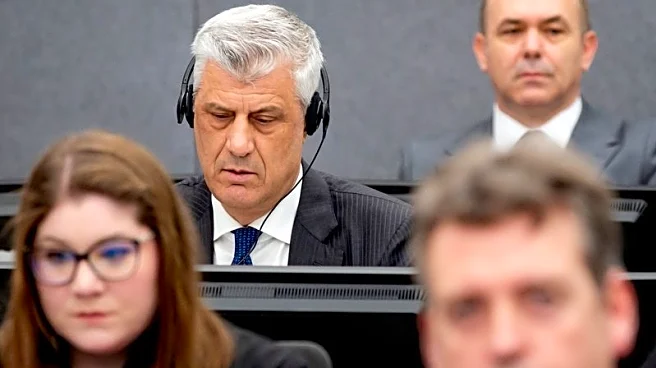What's Happening?
China is taking a prominent role at the COP30 climate summit in Brazil, filling a void left by the United States, which has not sent an official delegation for the first time in three decades. China's pavilion at the summit is a focal point, showcasing
its clean energy initiatives and engaging in behind-the-scenes diplomacy. This shift comes after President Trump withdrew the U.S. from the Paris Agreement, citing economic and national security concerns. China's growing influence in climate diplomacy is supported by its dominance in renewable energy and electric vehicles, positioning it as a leader in global climate negotiations.
Why It's Important?
China's increased involvement in climate diplomacy marks a significant shift in global environmental leadership. As the world's largest emitter of greenhouse gases, China's actions have substantial implications for international climate policy. The U.S. withdrawal from the summit could lead to a loss of influence in shaping global climate agreements, potentially affecting American industries and international relations. China's leadership in renewable energy technology could drive competitive advantages in global markets, impacting U.S. economic interests and environmental strategies.
What's Next?
China's role in climate negotiations is likely to expand, influencing future agreements and collaborations. The absence of the U.S. may prompt other nations to align more closely with China's climate initiatives, potentially reshaping global environmental policies. Stakeholders, including governments and NGOs, will need to navigate this new landscape, balancing economic interests with environmental commitments. The U.S. may face pressure to re-engage in international climate efforts to maintain its influence and address domestic and global environmental challenges.
Beyond the Headlines
China's leadership in climate diplomacy could lead to long-term shifts in global power dynamics, with implications for international trade and geopolitical relations. The ethical and cultural dimensions of climate change, such as equity and justice for developing nations, may gain prominence as China engages with diverse global stakeholders. This development could also spur innovation and investment in green technologies, driving economic growth and sustainability worldwide.

















